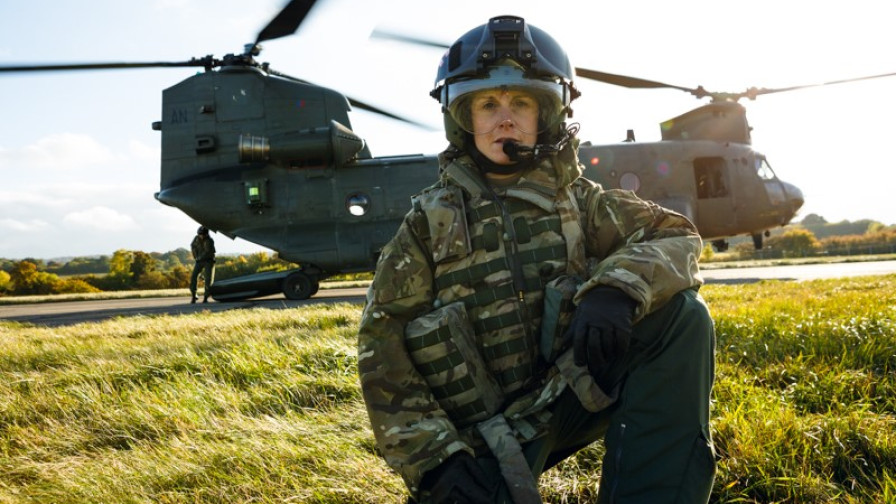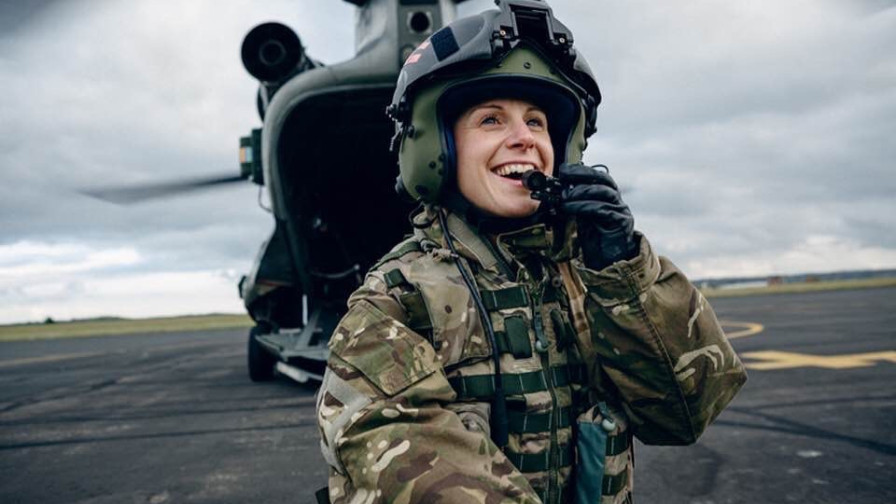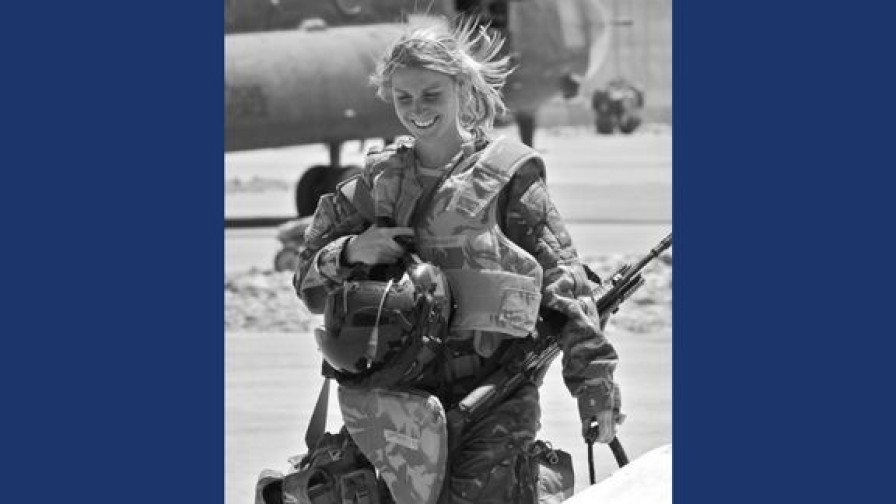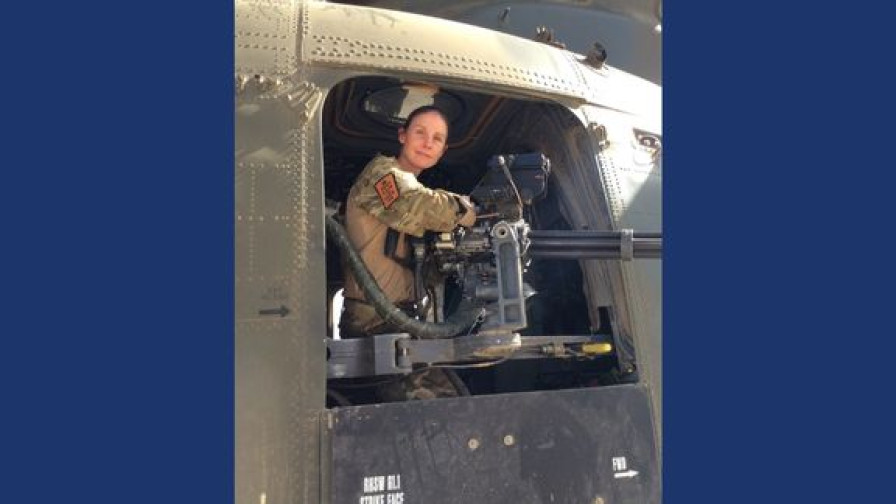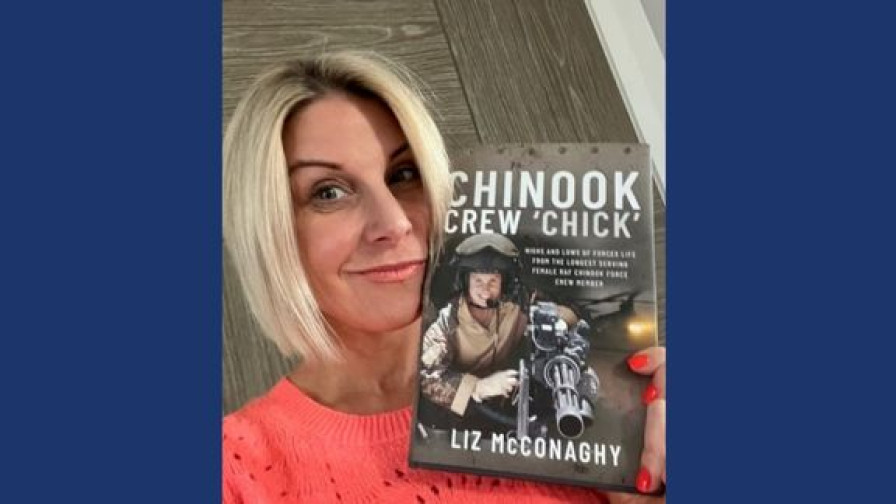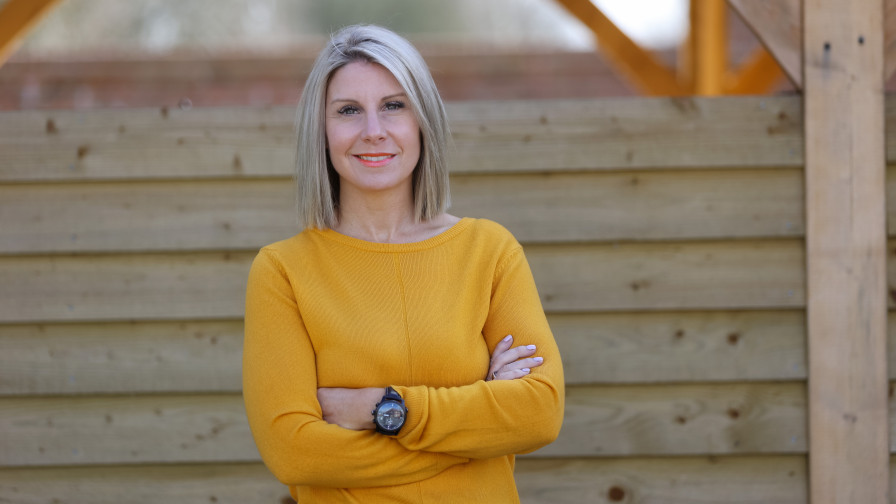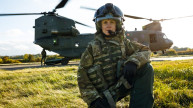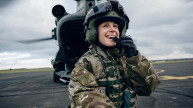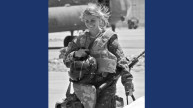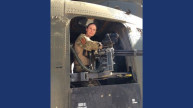Liz's Story
“Combat Stress made me feel like I wasn’t on the scrap heap. Someone cared - finally someone gave a damn about me.”
“My brother joined the Army the year before I joined the RAF and I went with him while he did his British Army Recruit Battery test. I was waiting for him and saw a magazine with a picture of a person hanging out of a helicopter on it. I thought ‘that looks like the coolest job ever, I really want to do that job!’. There was a chap in uniform nearby, so I asked him what the job was and he said it was a helicopter crewman.
“I made a few enquiries about joining the RAF and had some interviews and tests, then joined in 2001 on my 19th birthday. I was still really naïve.
“My first deployment was to Iraq in 2003; being 21 I was the youngest aircrew to deploy there. Chinook Force pulled out of Iraq and went to Afghanistan for 10 tours between 2005 – 2014, where I was working on the Medical Emergency Response Team (MERT).
“Being on the MERT for 10 years was relentless. We were routinely picking up bodies, bits of bodies, torsos and limbs. Our British soldiers would die on the back of the aircraft, and the cumulative impact from that would later catch up with me.
“In 2019 I was medically discharged due to a neck injury, as flying on a Chinook for 17 years had done my neck in. At this point I had no signs of PTSD in any way, shape or form.
“We went into lockdown in March 2020 and I went into it in a good headspace. But as it continued, I found it hard.
“Having left the RAF I’d lost that sense of identity and purpose. Every day I had put on my flying suit, which felt like my WonderWoman costume but I no longer had that.
“I struggled with the lack of routine. Exercise and keeping busy had always helped me deal with the trauma, but over four months of lockdown there was a creep where I was slowly unravelling. I was in an apartment on my own as I’d gone through a divorce, we weren’t allowed to form a bubble with anyone at that point, the gyms were closed, and we couldn’t go out for more than a 20 minute walk.
“As 2020 rolled on I started to develop insomnia. Every time I put my head on the pillow my brain would kick into action and I found myself running through thoughts that I couldn’t pin a theme to. It was just noise that went on and on, like someone’s name I couldn’t remember, or a place I’d never go back to.
“The lack of sleep was torture.
“I was on painkillers for my neck and I think that had a lot to do with it, as my emotions started to block out. In August 2020 I woke up and decided I was going to end my life that day. I called my GP surgery who initally asked me to come back in a few days, but when they heard how upset I was I was prescribed some medication. That night I tried to end it all.
“I woke up two days later in hospital, intubated, My overwhelming emotion was ‘I don’t want to die’ which was so far removed from where I had been.
When I was given my phone back, I saw I’d called 999 myself. I have no memory of that, but something inside me had wanted to survive.
“I left the hospital two days later, and had an appointment with the mental health team. They gave me a leaflet which had lots of numbers for civilian organisations, and one for Veterans’ Gateway, who said to call or text Combat Stress. I called the charity’s Helpline and there was a friendly voice at the end of the phone, making me feel like I wasn’t on the scrap heap. Someone cared - finally someone was giving a damn about me.
“Combat Stress started to put the wheels in motion for me to get counselling. I was signposted to PTSD Resolution and got given six sessions with them. Combat Stress then signposted me to Help for Heroes, who were briliant and I had 18 months counselling with them. The counselling helped me process what I’d experienced. It felt like the files in my brain were back in the right place, rather than strewn all over the floor. That really helped me get to where I am today.
“If any other veterans aren’t sure whether to call Combat Stress, I’d say the longer you put it off, the deeper you fall into the hole. Make the call early”.
February 2023

